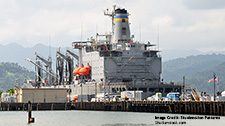Slavery and Human Trafficking in the 21st Century
Sol Torres and Niklas Swanström
An estimated 30 million people are subject to modern day slavery, including forced labor and sexual exploitation. Moreover, the trafficking of human beings is one of the fastest growing transnational criminal activities. Not only is it an abuse of the human rights of the victims involved, but it also incurs social, political, and economic costs for the countries it most impacts. Providing first an overview of the global phenomenon of modern-day slavery, this paper proceeds to study the Greater Mekong Subregion for whose states human trafficking represents a serious challenge—one which requires a well-coordinated response to, among other measures, scrutinize labor contracts in risk economic sectors, enhance interstate cooperation, and more effectively identify and prosecute human traffickers.
Related Publications
-
EU-Thailand FTA Negotiations: IUU Fishing and Human Rights Remain Obstacles
Thailand’s fishing industry, which at its height saw as many as 200,000 migrant workers from neighboring Laos, Myanmar, and Cambodia caught in a brutal system of abuse, withered global criticism […]
-
India-Japan-Philippines: A Strategic Maritime Trilateral or More?
Regional states like India, Japan, and the Philippines have been seeking cooperative solutions with other middle powers that can both counter the Chinese influence and fulfill other economic as well […]
-
ISDP Annual Report 2023
ISDP’s Annual Report for the year 2023. We look back on 2023, a year in which tensions and conflicts captured the strategic space in ISDP’s focus areas, making headlines around […]
-
Women’s Political Participation and Agency in Indonesia: An Interview with Raneeta Mutiara
In the context of the upcoming Indonesian presidential elections of February 2024, ISDP’s Asia Program intern Nolwenn Gueguen sat down with PhD scholar from the Singapore University of Social Sciences, […]
-
Indo-Pacific Security in 2030-35: Links in the Chain
In recent years, events like the COVID-19 pandemic and the Russia-Ukraine war have brought global supply chains squarely under the spotlight. The economic impact of these disruptive events exposed the […]




